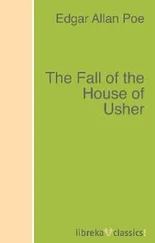“And what made you faint?” said Isabella, indifferent to the rest.
Matilda blushed, and stammered, “My father—he was sitting in judgment on a criminal.”
“What criminal?” said Isabella, eagerly.
“A young man,” said Matilda:—“I believe—I think it was that young man that——”
“What, Theodore?” said Isabella.
“Yes,” answered she; “I never saw him before; I do not know how he had offended my father—but as he has been of service to you, I am glad my lord has pardoned him.”
“Served me!” replied Isabella; “do you term it serving me, to wound my father, and almost occasion his death? Though it is but since yesterday that I am blessed with knowing a parent, I hope Matilda does not think I am such a stranger to filial tenderness as not to resent the boldness of that audacious youth, and that it is impossible for me ever to feel any affection for one who dared to lift his arm against the author of my being. No, Matilda, my heart abhors him; and if you still retain the friendship for me that you have vowed from your infancy, you will detest the man who has been on the point of making me miserable for ever.”
Matilda held down her head, and replied, “I hope my dearest Isabella does not doubt her Matilda’s friendship: I never beheld that youth until yesterday; he is almost a stranger to me: but as the surgeons have pronounced your father out of danger, you ought not to harbour uncharitable resentment against one, who, I am persuaded, did not know the marquis was related to you.”
“You plead his cause very pathetically,” said Isabella, “considering he is so much a stranger to you! I am mistaken, or he returns your charity.”
“What mean you?” said Matilda.
“Nothing,” said Isabella, repenting that she had given Matilda a hint of Theodore’s inclination for her. Then, changing the discourse, she asked Matilda what occasioned Manfred to take Theodore for a spectre?
“Bless me,” said Matilda, “did you not observe his extreme resemblance to the portrait of Alfonso in the gallery? I took notice of it to Bianca even before I saw him in armour; but with the helmet on he is the very image of that picture.”
“I do not much observe pictures,” said Isabella: “much less have I examined this young man so attentively as you seem to have done. Ah, Matilda, your heart is in danger; but let me warn you as a friend—he has owned to me that he is in love; it cannot be with you, for yesterday was the first time you ever met—was it not?”
“Certainly,” replied Matilda; “but why does my dearest Isabella conclude from anything I have said, that”—she paused—then continuing: “he saw you first, and I am far from having the vanity to think that my little portion of charms could engage a heart devoted to you—may you be happy, Isabella, whatever is the fate of Matilda!”
“My lovely friend,” said Isabella, whose heart was too honest to resist a kind expression, “it is you that Theodore admires; I saw it; I am persuaded of it; nor shall a thought of my own happiness suffer me to interfere with yours.” This frankness drew tears from the gentle Matilda; and jealousy, that for a moment had raised a coolness between these amiable maidens, soon gave way to the natural sincerity and candour of their souls. Each confessed to the other the impression that Theodore had made on her; and this confidence was followed by a struggle of generosity, each insisting on yielding her claim to her friend. At length the dignity of Isabella’s virtue reminding her of the preference which Theodore had almost declared for her rival, made her determine to conquer her passion, and cede the beloved object to her friend.
During this contest of amity, Hippolita entered her daughter’s chamber.
“Madam,” said she to Isabella, “you have so much tenderness for Matilda, and interest yourself so kindly in whatever affects our wretched house, that I can have no secrets with my child which are not proper for you to hear.” The princesses were all attention and anxiety.
“Know then, madam,” continued Hippolita, “and you, my dearest Matilda, that being convinced by all the events of these two last ominous days that Heaven purposes the sceptre of Otranto should pass from Manfred’s hands into those of the Marquis Frederic; I have been perhaps inspired with the thought of averting our total destruction by the union of our rival houses. With this view I have been proposing to Manfred, my lord, to tender this dear, dear child to Frederic your father.”
“Me to Lord Frederic!” cried Matilda. “Good heavens! my gracious mother, and have you named it to my father?”
“I have,” said Hippolita: “he listened benignly to my proposal, and is gone to break it to the marquis.”
“Ah! wretched princess,” cried Isabella, “what hast thou done? what ruin has thy inadvertent goodness been preparing for thyself, for me, and for Matilda!”
“Ruin from me, to you, and to my child!” said Hippolita; “what can this mean?”
“Alas!” said Isabella, “the purity of your own heart prevents your seeing the depravity of others. Manfred, your lord, that impious man——”
“Hold!” said Hippolita, “you must not, in my presence, young lady, mention Manfred with disrespect; he is my lord and husband, and——”
“Will not long be so,” said Isabella, “if his wicked purposes can be carried into execution.”
“This language amazes me,” said Hippolita. “Your feeling, Isabella, is warm: but until this hour I never knew it betray you into intemperance. What deed of Manfred authorizes you to treat him as a murderer, an assassin?”
“Thou virtuous, and too credulous princess!” replied Isabella; “it is not thy life he aims at—it is to separate himself from thee! to divorce thee! to——”
“To divorce me!”—“To divorce my mother!” cried Hippolita and Matilda at once.
“Yes,” said Isabella; “and, to complete his crime, he meditates—I cannot speak it!”
“What can surpass what thou hast already uttered?” said Matilda.
Hippolita was silent. Grief choked her speech; and the recollection of Manfred’s late ambiguous discourses confirmed what she heard.
“Excellent, dear lady!—madam! mother!” cried Isabella, flinging herself at Hippolita’s feet in a transport of passion; “trust me, believe me, I will die a thousand deaths sooner than consent to injure you, than yield to so odious——”
“Oh, this is too much!” cried Hippolita. “What crimes does one crime suggest! Rise, dear Isabella; I do not doubt your virtue. Oh, Matilda, this stroke is too heavy for thee! weep not, my child; and not a murmur, I charge thee. Remember, he is thy father still!”
“But you are my mother, too,” said Matilda, fervently; “and you are virtuous, you are guiltless! Oh, must not I, must not I complain?”
“You must not,” said Hippolita; “come, all will be well. Manfred, in the agony for the loss of thy brother, knew not what he said; perhaps Isabella misunderstood him: his heart is good—and, my child, thou knowest not all. There is a destiny hangs over us: the hand of Providence is stretched out. Oh, could I but save thee from the wreck.—Yes,” continued she, in a firmer tone, “perhaps the sacrifice of myself may atone for all; I will go and offer myself to this divorce—it boots not what becomes of me. I will withdraw into the neighbouring monastery, and waste the remainder of life in prayers and tears for my child and—the prince.”
“Thou art as much too good for this world,” said Isabella, “as Manfred is execrable—but think not, lady, that thy weakness shall determine for me. I swear, hear me all ye angels——”
“Stop, I adjure thee,” cried Hippolita: “remember thou dost not depend on thyself; thou hast a father——”
Читать дальше












